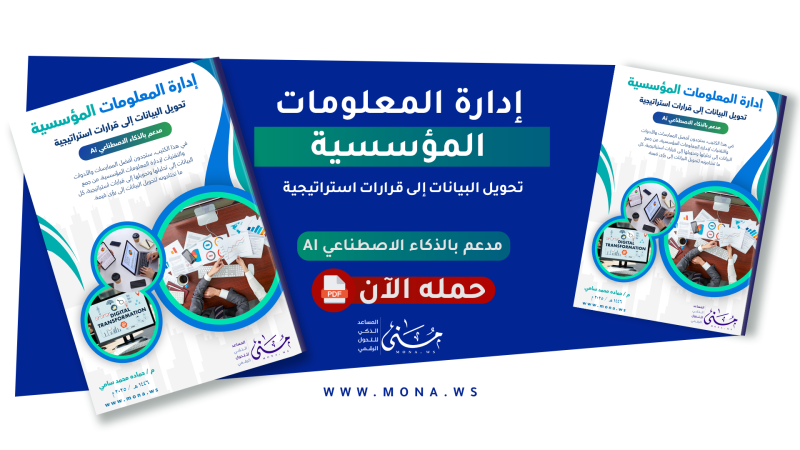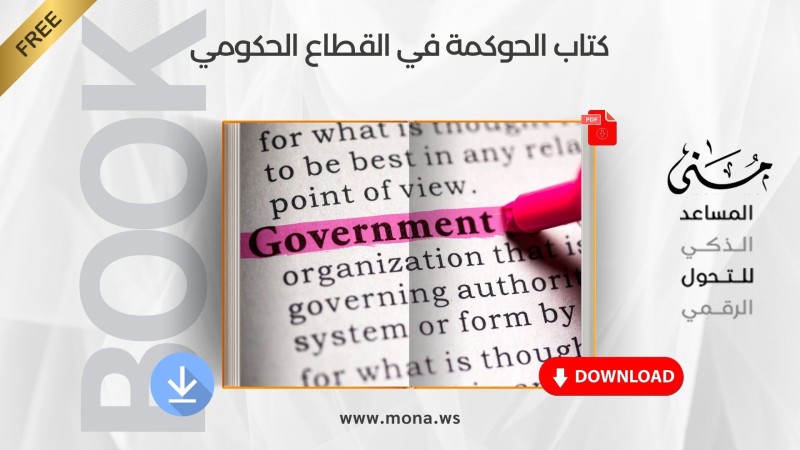Evidence-Based Governance Book - Scientific Research and Decision Science
Written by: Professor Dr. Faris Rashid Al-Bayati
Summary of the book "Evidence-Based Governance: Scientific Research and Decision Science"
The book, Evidence-Based Governance, aims to highlight the importance of scientific research in effective decision-making within modern governance systems. The author, Professor Faris Rashid Al-Bayati, explains how institutions and government and private entities can benefit from scientific evidence and reliable data when formulating public policies and managing resources efficiently.
Evidence-Based Governance is based on an in-depth analysis of the concept of evidence-based governance, reviewing various theories and strategies that link scientific research and decision-making, making it an important reference for researchers and policymakers.
Main themes of the book
The Evidence-Based Governance book includes several main topics:
The concept of evidence-based governance
The author explores the meaning of modern governance and how it can become more efficient and effective when its decisions are based on accurate scientific data. He also discusses the difference between traditional decision-making and evidence-based decision-making, emphasizing that decisions based on reliable information contribute to enhancing transparency and accountability and achieving sustainable development.
The relationship between scientific research and decision-making
The book, Evidence-Based Governance, focuses on how to use scientific research findings to support strategic decisions, whether in the public or private sectors. It also highlights the challenges facing decision makers when dealing with scientific research, such as cognitive biases, lack of data, and difficulty accessing recent studies. It also proposes solutions to enable organizations to use scientific research effectively.
Decision science and its role in governance
The book explores the concept of "decision science" and how it can be applied across various sectors, such as economics, health, and the environment, to ensure that decisions are made based on a logical analysis of available evidence. It also discusses the tools and techniques used in data analysis and decision-making, such as artificial intelligence, mathematical modeling, and risk analysis.
Challenges and opportunities in implementing evidence-based governance
The author points out the challenges that may hinder the implementation of this governance, such as a lack of awareness of the importance of scientific research, weak coordination between research institutions and decision-makers, and legal and regulatory issues. However, he also presents tremendous opportunities that can be exploited, such as developing open data systems, enhancing cooperation between universities and government agencies, and using modern technology to analyze and manage information.
The importance and impact of the book
This book is an important contribution to the field of governance and management, offering readers a comprehensive view of how scientific research can be harnessed in policy development and strategic decision-making. It is intended for researchers, government officials, and practitioners in various fields, helping them understand how to use scientific evidence to develop innovative solutions to contemporary challenges.
In short, Evidence-Based Governance offers an effective model for more transparent and efficient governance, emphasizing that the success of any organization or country in achieving sustainable development depends primarily on its ability to leverage scientific knowledge to guide its decisions.
Digitization and Evidence-Based Governance Book
Professor Faris Rashid Al Bayati's book, "Evidence-Based Governance," addresses the importance of using scientific research and accurate data in decision-making and public policy formulation. This concept aligns directly with digitization, which relies on data analysis, artificial intelligence, and process automation, such as smart document management and administrative communications systems, including DocSuite.
Modern governance calls for decision-making based on reliable data and accurate analysis. Systems like DocSuite provide this capability, transforming paper documents into electronic documents, organizing data, and automating administrative processes. Such systems provide managers with immediate access to documented information, enhancing organizations' ability to make quick and effective decisions based on digital evidence.
Digital transformation systems are an ideal tool for applying the concepts of evidence-based governance into practice, as they help collect, organize, and analyze administrative and scientific data, making decisions more accurate and based on actual evidence, not just personal estimates.
Digital transformation through modern digital systems, such as DocSuite, can be considered the practical application of the concept of evidence-based governance, integrating scientific research, artificial intelligence, and data management to ensure more accurate and efficient management decisions.
You can download the Governance Study: Cairo Governorate's Electronic Portal directly now.
 حمل كتاب الحوكمة القائمة على الأدلة الآن بسهولة
حمل كتاب الحوكمة القائمة على الأدلة الآن بسهولة










Comments
Add New Comment